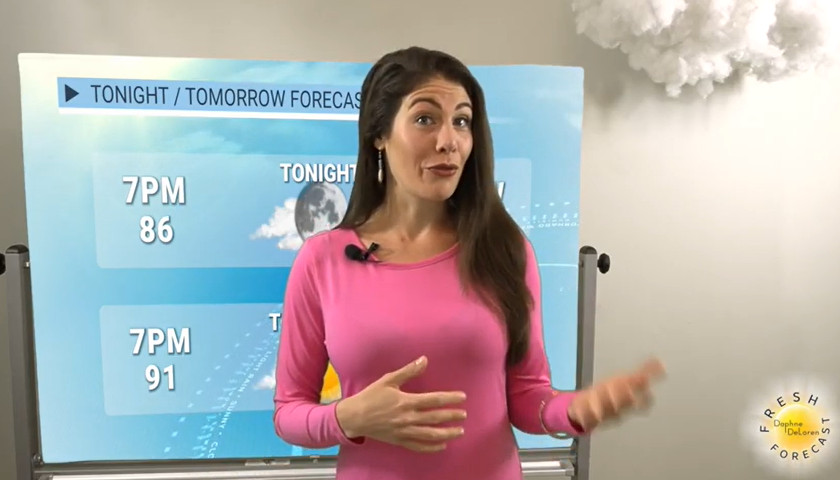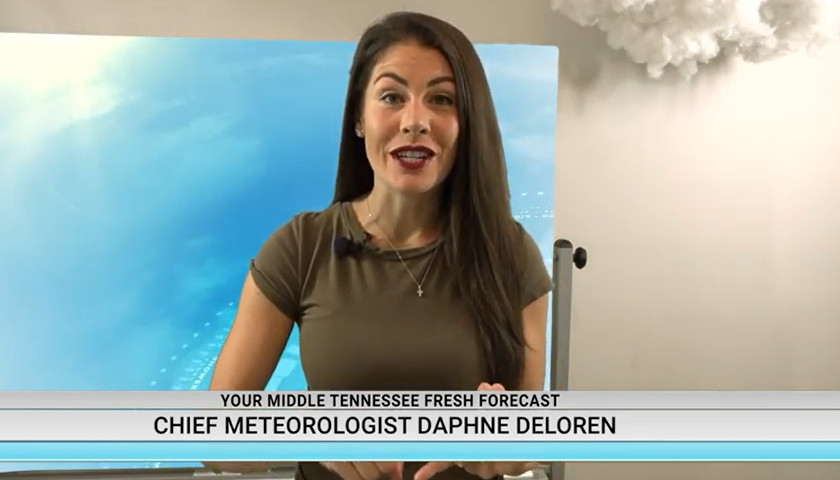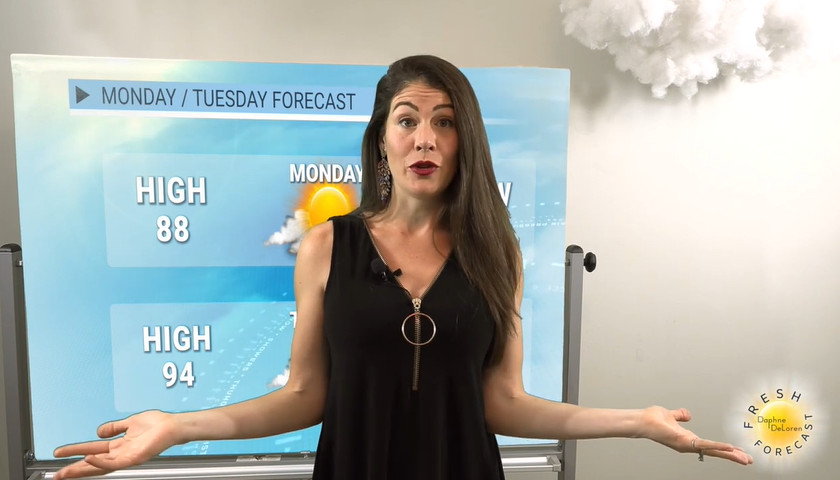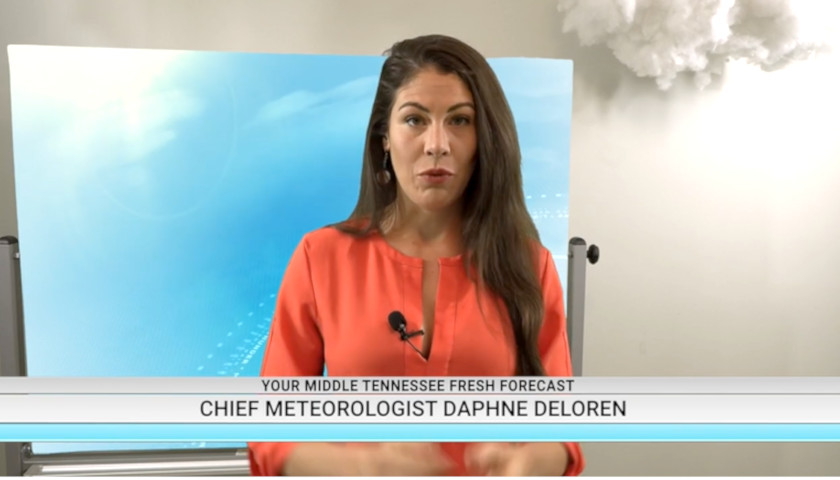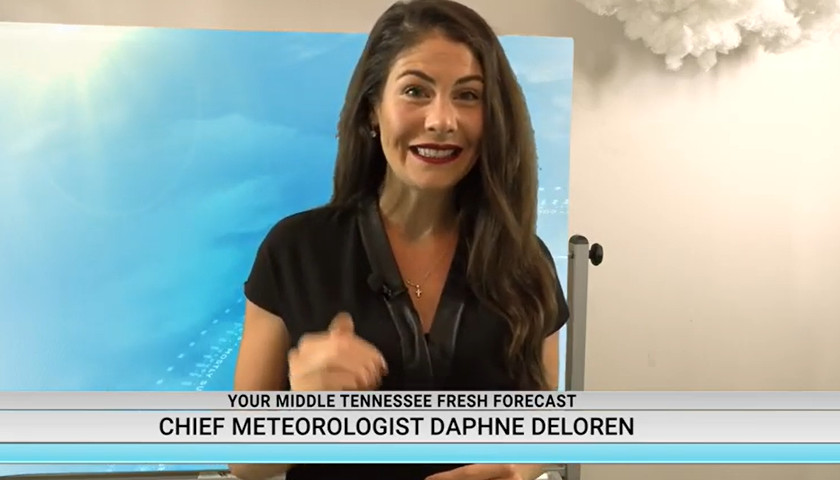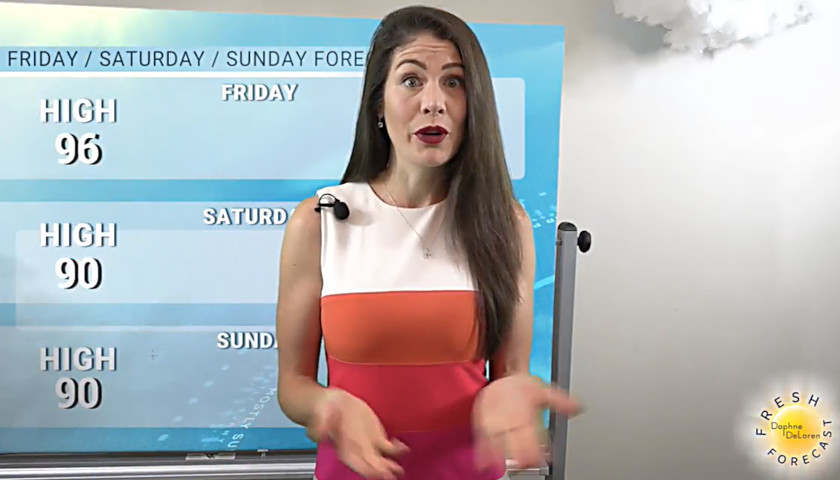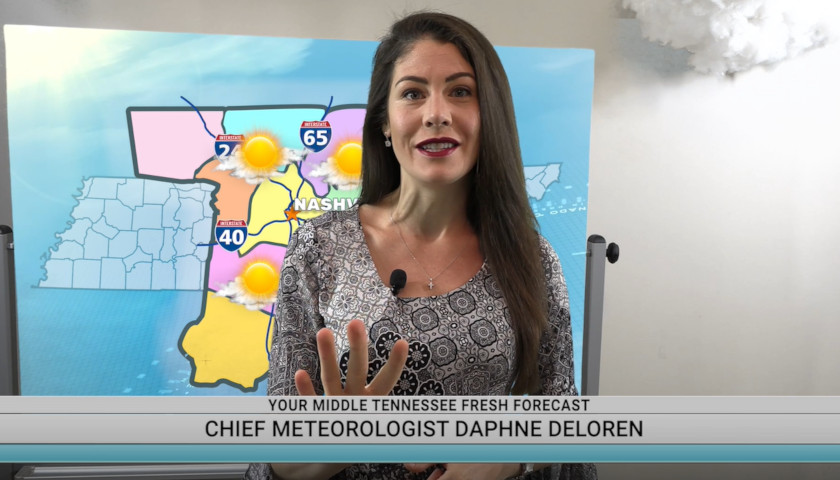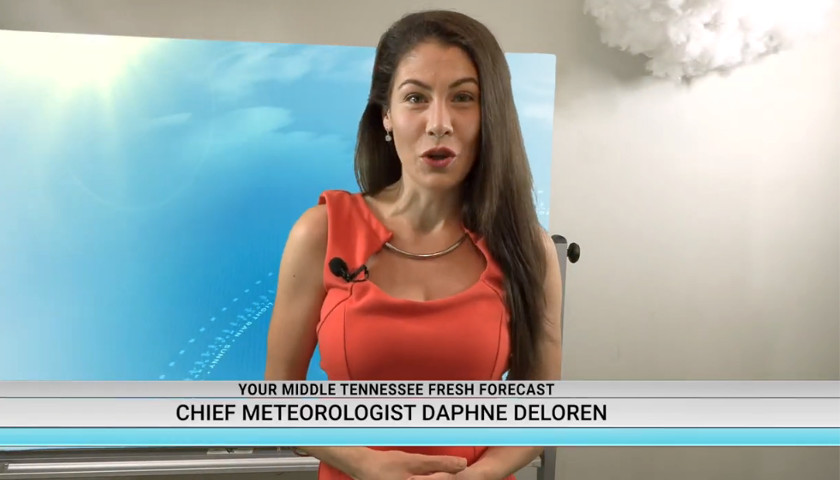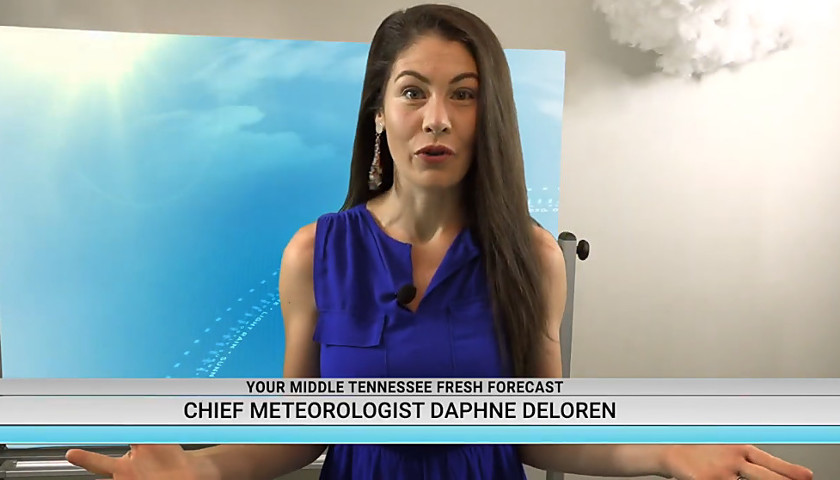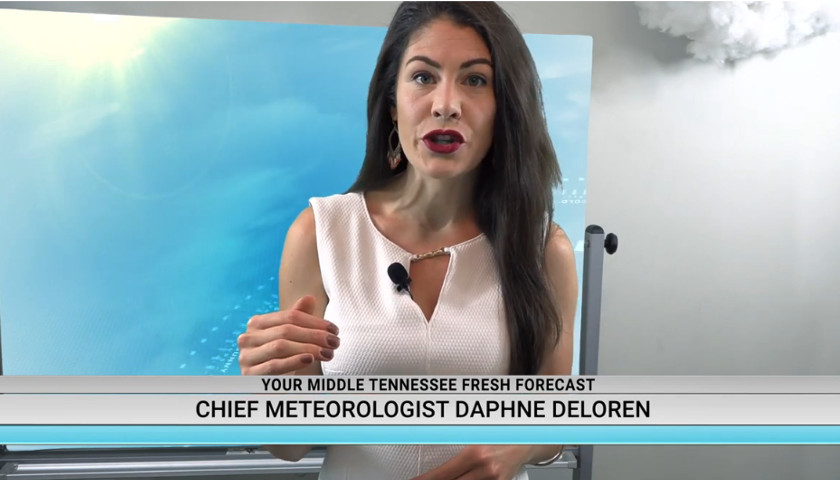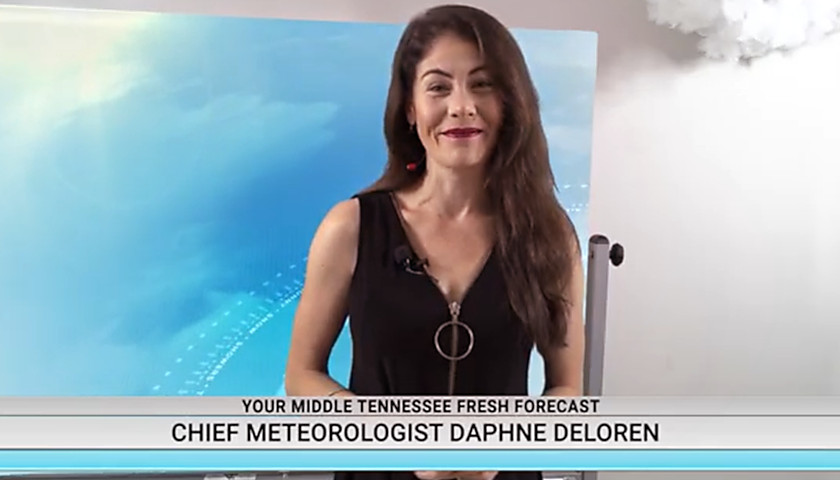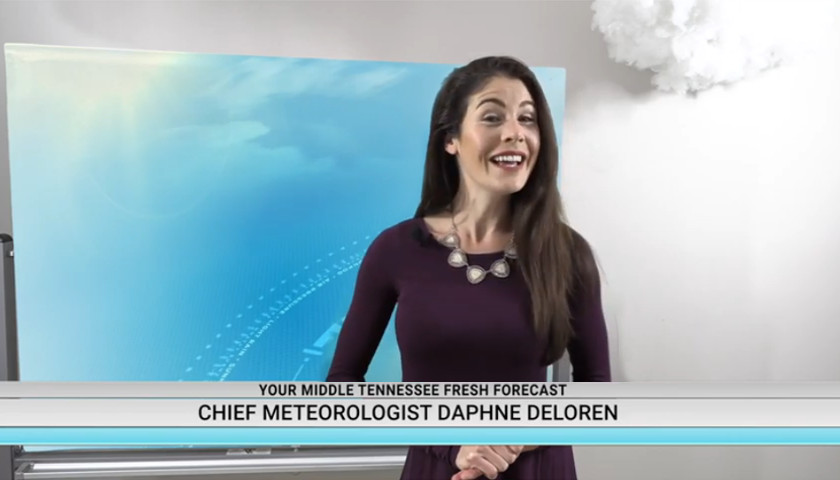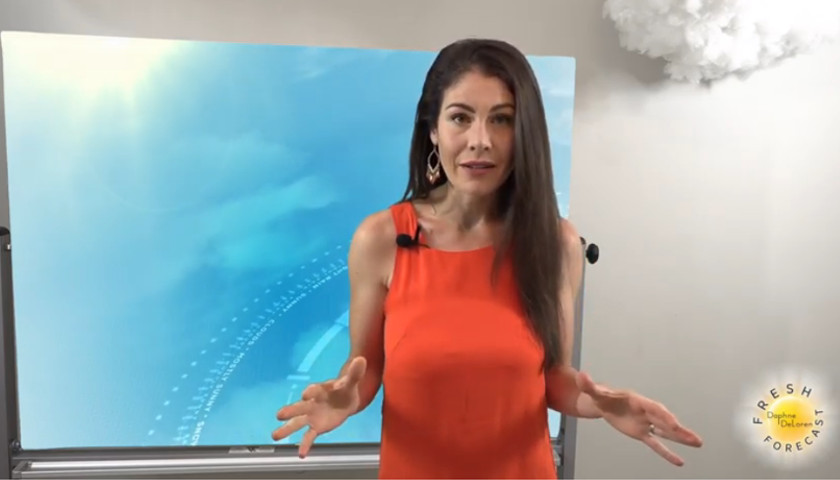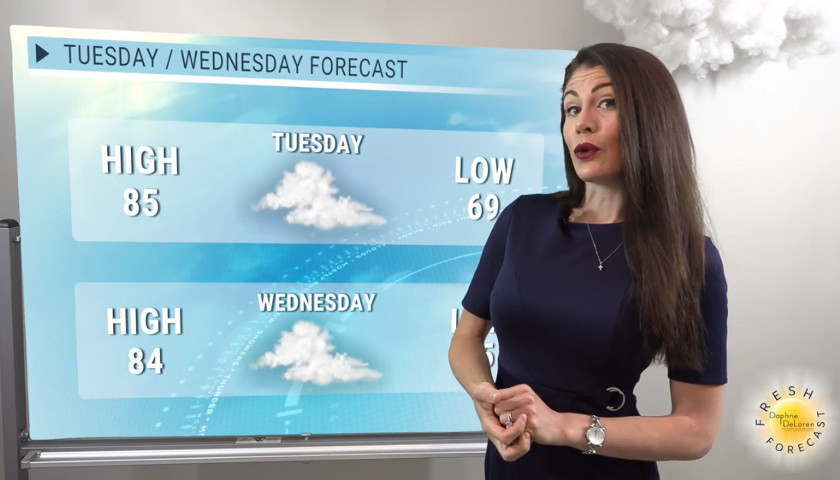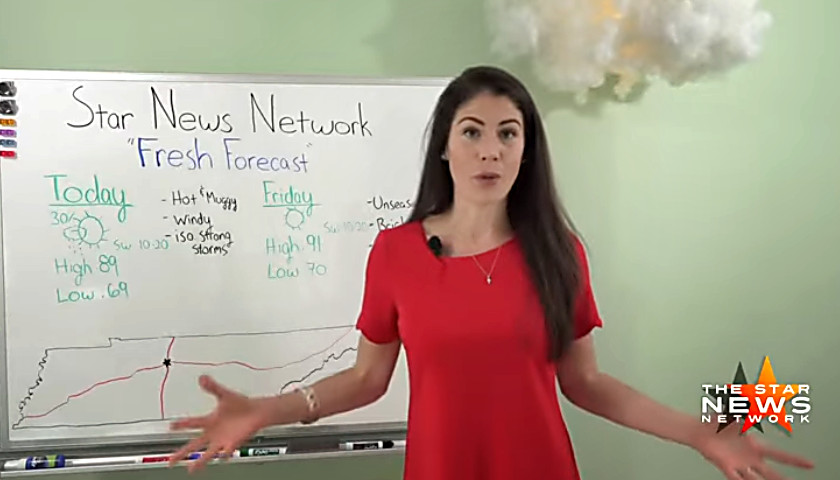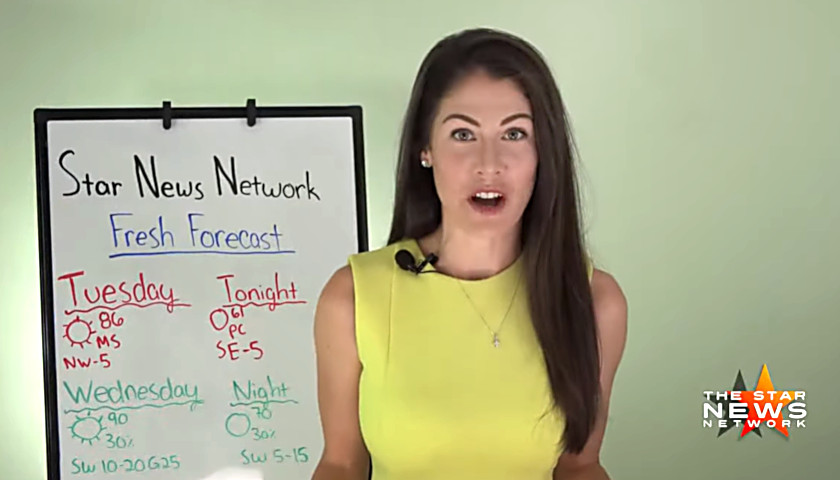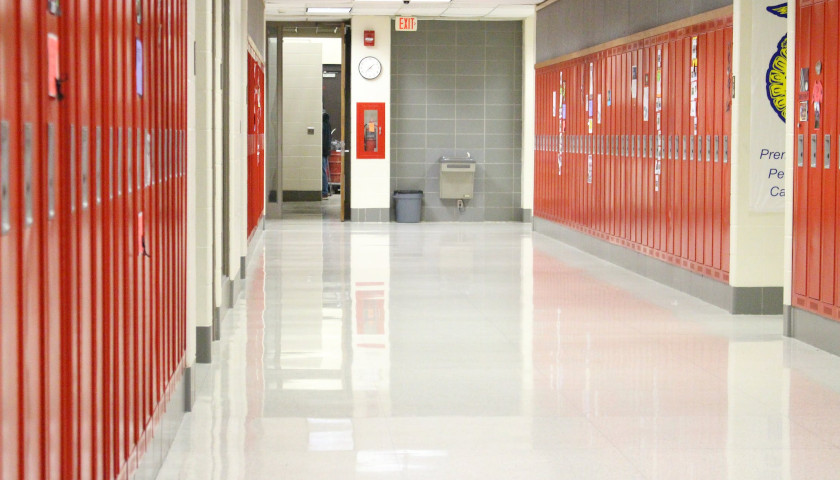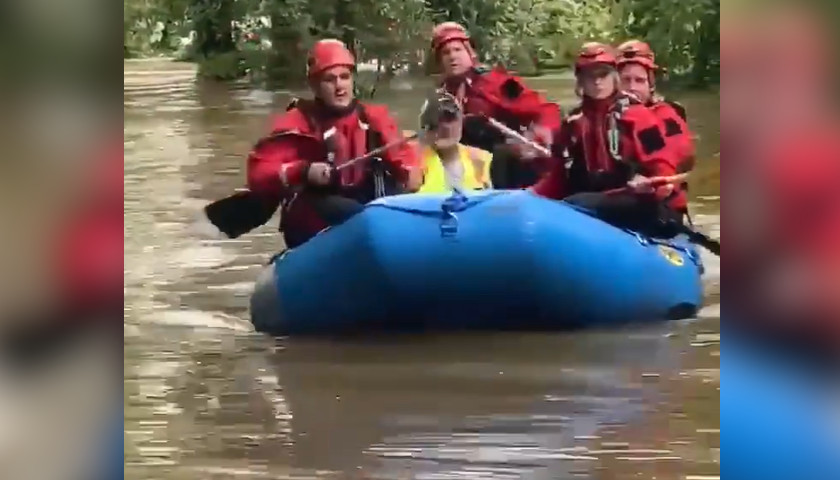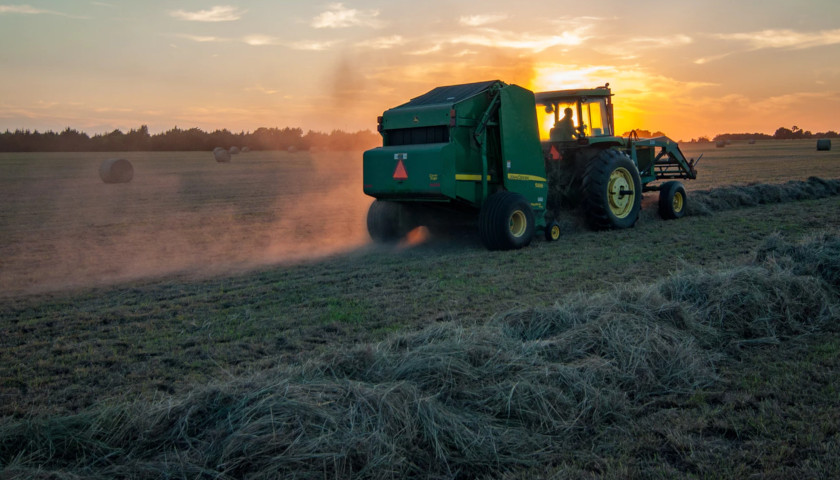Star News Network Chief Meteorologist Daphne DeLoren shares her Middle Tennessee Fresh Forecast for Wednesday night and Thursday.
Read the full storyTag: weather
Your Middle Tennessee Fresh Forecast with Chief Meteorologist Daphne DeLoren for Tuesday and Wednesday
Star News Network Chief Meteorologist Daphne DeLoren shares her Middle Tennessee Fresh Forecast for Tuesday and into Wednesday.
Read the full storyYour Middle Tennessee Fresh Forecast with Chief Meteorologist Daphne DeLoren for Monday and Tuesday
Star News Network Chief Meteorologist Daphne DeLoren shares her Middle Tennessee Fresh Forecast for Monday and into Tuesday.
Read the full storyYour Middle Tennessee Fresh Forecast with Chief Meteorologist Daphne DeLoren for Friday and the Weekend
Star News Network Chief Meteorologist Daphne DeLoren shares her Middle Tennessee Fresh Forecast for Friday, Saturday, and Sunday.
Read the full storyYour Middle Tennessee Fresh Forecast with Chief Meteorologist Daphne DeLoren for Thursday and Friday
Star News Network Chief Meteorologist Daphne DeLoren shares her Fresh Forecast for Thursday and Friday.
Read the full storyYour Middle Tennessee Fresh Forecast with Chief Meteorologist Daphne DeLoren for Friday and the Weekend
Star News Network Chief Meteorologist Daphne DeLoren shares her Fresh Forecast for Friday and the weekend.
Read the full storyYour Middle Tennessee Fresh Forecast with Chief Meteorologist Daphne DeLoren for Thursday
Star News Network Chief Meteorologist Daphne DeLoren shares her Fresh Forecast for Thursday.
Read the full storyYour Middle Tennessee Fresh Forecast with Chief Meteorologist Daphne DeLoren for Wednesday
Star News Network Chief Meteorologist Daphne DeLoren shares her Fresh Forecast for Wednesday.
Read the full storyYour Middle Tennessee Fresh Forecast with Chief Meteorologist Daphne DeLoren for Tuesday
Star News Network Chief Meteorologist Daphne DeLoren shares her Fresh Forecast for Tuesday.
Read the full storyHeat Wave: Nashville Office of Emergency Management Releases List of Precautions Tennesseans Should Take
The Nashville Office of Emergency Management is urging Tennesseans to take precautions during this week due to forecast extreme heat. According to the office, high temperatures are forecast to reach the upper 90s with heat indexes of more than 100 degrees for multiple days this upcoming week.
Read the full storyYour Middle Tennessee Fresh Forecast with Chief Meteorologist Daphne DeLoren for Monday
Star News Network Chief Meteorologist Daphne DeLoren shares her weather forecast for Monday.
Read the full storyYour Middle Tennessee Fresh Forecast with Chief Meteorologist Daphne DeLoren for Friday and the Weekend
Star News Network Chief Meteorologist Daphne DeLoren shares her weather forecast for Friday and the weekend.
Read the full storyYour Middle Tennessee Fresh Forecast with Chief Meteorologist Daphne DeLoren for Thursday, June 09
Star News Network Chief Meteorologist Daphne DeLoren shares her weather forecast for Thursday, June 09
Read the full storyYour Middle Tennessee Fresh Forecast with Chief Meteorologist Daphne DeLoren for June 08
Star News Network Chief Meteorologist Daphne DeLoren shares her forecast for Wednesday, June 08
Read the full storyYour Middle Tennessee Fresh Forecast with Chief Meteorologist Daphne DeLoren for June 07
Star News Network Chief Meteorologist Daphne DeLoren shares her forecast for Tuesday, June 07
Read the full storyYour Middle Tennessee Fresh Forecast with Daphne DeLoren for May 19, 2022
The Star News Network’s Chief Meteorologist Daphne DeLoren shares her Middle Tennessee ‘Fresh Forecast’ for Thursday and Friday.
Read the full storyThe Tennessee Star Launches ‘Your Middle Tennessee Fresh Forecast’ with Chief Meteorologist Daphne DeLoren
The Tennessee Star and The Star News Network launched a new addition to their services for consumers across Tennessee—a weather forecast.
The new feature will allow Star News Network Chief Meteorologist Daphne DeLoren to provide a daily outlook of the conditions across Middle Tennessee.
Read the full storyYour Middle Tennessee Fresh Forecast with Daphne DeLoren for May 17, 2022
The Star News Network’s chief Meteorologist Daphne DeLoren shares her Middle Tennessee ‘Fresh Forecast’ for Tuesday and Wednesday.
Read the full storyGovernor Bill Lee Requests Federal Aid for Nine Counties Impacted by Deadly Weekend Tornadoes
Tennessee Governor Bill Lee announced on Monday that he requested federal emergency assistance for nine counties impacted in the tornado outbreak over the weekend, according to a press release by the Tennessee Department of Military.
Read the full storySchools in Middle Tennessee Forced to Close Due to Another Round of Flooding
On Tuesday, Bedford County Schools, Hickman County Schools, and Maury County Schools were forced to close for the day due to a second wave of dangerous flooding.
Read the full storyWater Rescues Underway After Middle Tennessee Is Hit with Another Round of Flooding
On Monday, Middle Tennessee was rocked with another round of heavy rainfall that led to dangerous flooding. Multiple water rescues were underway in Rutherford, Maury, and Williamson County to help those trapped by the water.
Read the full storyMichigan Gov. Whitmer Requests Farm Bailout from Federal Government Because of Weather
by Tyler Arnold Michigan Gov. Gretchen Whitmer is seeking federal funding for farms in her state because of the struggles farmers are facing from an unusual wet period and other issues with the weather. “Michigan farmers are in a state of crisis right now because of extraordinary weather conditions, from historic rainfall, extreme cold, excessive snow, flash flooding, and tornadoes,” Whitmer said in a news release. “Michigan has a rich history in agriculture, and on behalf of our farmers, our families, and our economy, we need to take action now. I’m ready and eager to partner with the federal government to make sure Michigan farmers have the support they need during this difficult time.” In a letter to U.S. Agriculture Secretary Sonny Perdue, Whitmer requested that the department give Michigan a USDA Secretarial Disaster Designation and more flexibility – and the ability to apply for aid – under the Federal Crop Insurance Program and Congress’s disaster legislation. Michigan received 37.9 inches of rain between May 1, 2018 and April 30, 2019, which is the third wettest year recorded in state history. Whitmer said that this has led to oversaturated topsoil, which prevented farmers from planting their fields and harvesting…
Read the full storyStudy: Climate Change ‘Skeptics’ Are More Eco-Friendly Than ‘Alarmists’
by Jason Hopkins A recently released study suggests those less concerned with climate change practice more eco-friendly habits than those who are more alarmed about the issue. In an April study published in the Journal of Environmental Psychology, University of Michigan psychology graduate student Michael Hall researched the behavioral differences between people who hold varying degrees of concern toward climate change. Hall, over the course of one year, examined 600 different Americans who “regularly reported their climate change beliefs, pro-environmental behavior, and other climate-change related measures.” The report divided subjects into three groups: “Highly Concerned,” “Cautiously Worried” and “Skeptical.” Additionally, the report measured how frequently subjects participated in “green” behavior: using public transportation, purchasing environmentally friendly products, using reusable shopping bags, and recycling. Unsurprisingly, Americans in the “skeptical” category were most opposed to enacting government regulations to address climate change. Those in the “Highly Concerned” category were much more in favor of government intervention. A surprising find in the study, however, was these same skeptics were “most likely to report engaging in individual-level pro-environmental behaviors.” Hall and his colleagues found these behaviors to be consistent throughout the year. While it is difficult to pinpoint the exact reasons for someone to be strongly supportive of environmental…
Read the full storySix Cloud Types and the Weather They Forecast
by Hannah Christensen Modern weather forecasts rely on complex computer simulators. These simulators use all the physics equations that describe the atmosphere, including the movement of air, the sun’s warmth, and the formation of clouds and rain. Incremental improvements in forecasts over time mean that modern five-day weather forecasts are as skillful as three-day forecasts were 20 years ago. But you don’t need a supercomputer to predict how the weather above your head is likely to change over the next few hours – this has been known across cultures for millennia. By keeping an eye on the skies above you, and knowing a little about how clouds form, you can predict whether rain is on the way. And moreover, a little understanding of the physics behind cloud formation highlights the complexity of the atmosphere, and sheds some light on why predicting the weather beyond a few days is such a challenging problem. So here are six clouds to keep an eye out for, and how they can help you understand the weather. 1) Cumulus Clouds form when air cools to the dew point, the temperature at which the air can no longer hold all its water vapour. At this temperature, water vapour condenses to…
Read the full story
